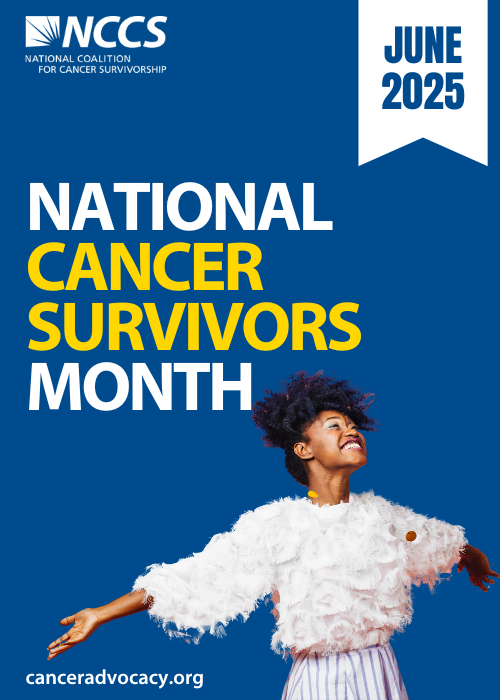Medicare Payment Reform: A Chance to Advance Patient-Centered Cancer Care
NCCS is following two important policy developments that will impact Medicare payments for physician services. Congress is making early steps to reform Medicare payments for physician services, and the Center for Medicare & Medicaid Innovation (CMMI) is seeking public input on refinements in Medicare payments to physician specialists. These steps to improve the Medicare payment system come after the Institute of Medicine concluded last fall that the cancer care system is in crisis. As a voice for patients in these national discussions, we are working to make sure that all efforts to improve Medicare are responsive to the needs of cancer patients and foster patient-centered care.
The leaders of the House Ways & Means and Energy & Commerce Committees and the Senate Finance Committee – the panels with jurisdiction over the Medicare program – have negotiated a major legislative package to reform the way that Medicare pays for physician services. The bipartisan, bicameral package would eliminate the current formula (known as the sustainable growth rate, or SGR) that governs growth in Medicare spending. The current SGR formula threatened annual reductions in Medicare spending and also triggered Congressional action to block such cuts. The repeal of the SGR will relieve uncertainty about Medicare payments that affected both doctors and patients.
The legislative package goes far beyond simply repealing the SGR formula. The committees have proposed two major changes that will move Medicare payment away from a fee-for-service system that rewards volume, and towards a system that rewards better care. Beginning in 2018, doctors and other providers would be eligible for incentive payments if they meet certain standards as defined in the Merit-Based Incentive Program System (MIPS). Additional incentives are provided by the legislation to encourage health care professionals to design and test alternative payment models, or APMs.
The physician payment package defines the activities that physicians and other providers might undertake to qualify for MIPS incentives payments. NCCS is pleased that the compromise bill includes an emphasis on clinical improvement activities. We believe that these activities, including care planning, care coordination, shared decision-making and other processes, will improve the patient experience and their quality of life. We will focus on promoting these processes as the bill moves through Congress. Our goal is to make sure that they are implemented in a way that fosters practice improvement and empowers the patient to make informed decisions about care.
The enactment of the Medicare legislation is far from guaranteed, in part because Congress must identify a way to pay for the repeal of the SGR formula and other provisions of the legislation. Congressional leaders are actively engaged in efforts to identify these resources to finance the legislation, or “pay-fors”.
At the same time, CMMI has asked for public input on changes to Medicare payment to medical specialists. The CMMI request for information focuses heavily on cancer care payment reform and provides the public access to the work of Mitre, RAND, and Brookings Institution. CMMI invests in innovative payment and delivery models, and input from the public, along with the advice from CMMI consultants, will presumably influence those models that the agency advances. NCCS will offer its advice to CMMI regarding payment and delivery models fostering practice changes that are responsive to the needs of patients and emphasize the need for cancer care planning and coordination.
On February 28, 2014, NCCS will co-host a symposium with the American Enterprise Institute that focuses on strategies to ensure that the broad-based effort to refine Medicare payment can be utilized for patient-centered cancer payment changes.




